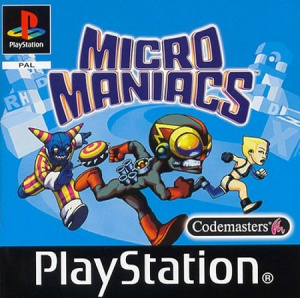
Hey there, welcome to another guide of mine, one that will be way easier and shorter than the previous ones!
Let’s imagine you have a PS1 game you love, perhaps a game of your childhood even, and you wanted to listen to the game’s soundtrack without booting it up. You look the game up on YouTube, and the only upload for the OST is a 128kbps 240p video from 2009 that probably sounds like this:
OK, if YouTube uploads don’t have a good quality, maybe the official albums do ? So you go on VGMDB, look the game up, and… No dice, the game isn’t on the website, or perhaps it is, but only with fan remixes.

In this situation, only one possible solution remains: GameRipping! There are two types of gamerips: the ones which record the audio, either from an emulator, or even the console itself; and the ones which extract the audio from the game’s files.
I will exclusively talk about the second one, but if you want to record the audio from a game, you’d better make sure both your recording software/hardware and your audio input are accurate (lots of old Sega Genesis/Megadrive gamerips sounded different than the original hardware because they were recorded in an emulator that didn’t play the sounds accurately).
When it comes to gameripping on the PS1, there are two possible outcomes: the game stores the music in the CD-DA format, which means it’s possible to rip the audio from it with a usual AudioCD ripping tool (such as Exact Audio Copy, see this guide), or it stores the music inside a proprietary PS1 format (.XA, .VB/.VH streams, etc…).

In case of the latter, we can use a helpful PS1 ripping tool known as jpsxdec. This tool’s purpose is to parse all the data contained within a disc (as an .iso), and then locate any video, image, or audio from the game.

The usage of this tool is far from complicated: pressing “Open and Analyze File” will open an explorer window where we need to select the ISO we want to rip. Once a disc has been selected, theprogram will then show all the files it contains, with the type of media contained within said file if it’s known.

By pressing on the “+” button next to a file, we can inspect its contents closely, such as with .XA files that contain multiple audio tracks. If we tick the checkbox next to a file, it will be saved to a certain directory when we hit the “Save All Selected” button in the bottom-right corner.

Aaaand… That’s it, really. If we go to the directory we saved our files to, it will show them as intended.

Some games might play additionnal sounds on top of said tracks ingame (often the case with rhythm games such as Paca Paca Passion), or perhaps it will add some post-processing reverb, but in general this will be enough to gamerip the music from a PS1 game.
In order to play gameripped files natively, i.e without converting them to .WAV, we can install foobar2000, as well as all the video game-related components, such as the VGMStream Player, Game Emu Player and PSF Decoder.

As always, thank you for reading this and see you in another post of mine!